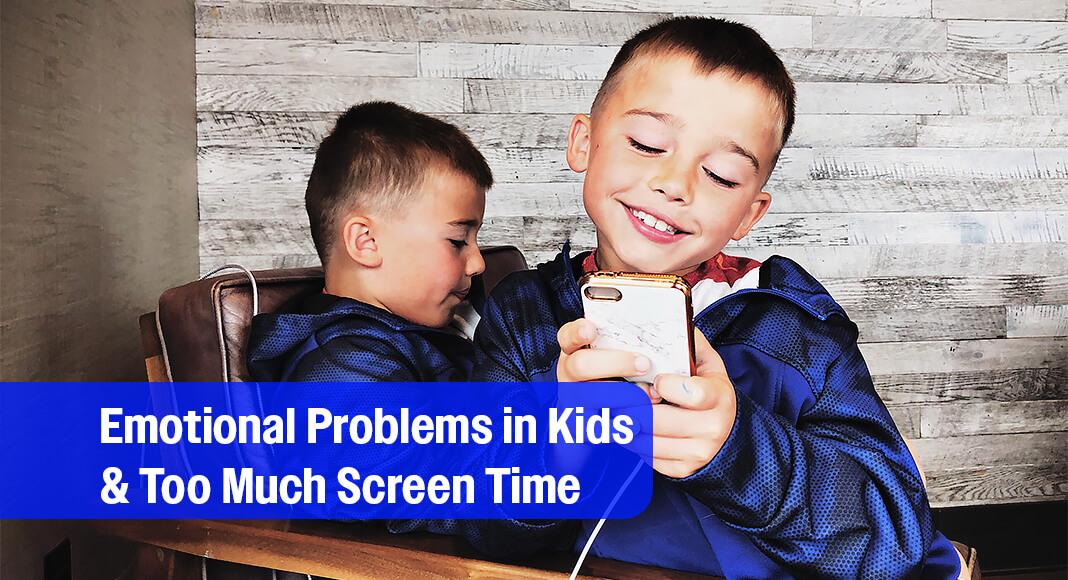
Mega Doctor News
American Psychological Association
WASHINGTON— Spending too much time on screens may cause emotional and behavioral problems in children—and those problems can lead to even more screen use, according to research published by the American Psychological Association.
Conducted by an international team of researchers, the study systematically reviewed and meta-analyzed 117 studies, encompassing data from over 292,000 children worldwide. The findings were published in the journal Psychological Bulletin.
“Children are spending more and more time on screens, for everything from entertainment to homework to messaging friends,” said Michael Noetel, PhD, an associate professor in the School of Psychology at Queensland University and one of the authors of the study. “We found that increased screen time can lead to emotional and behavioral problems, and kids with those problems often turn to screens to cope.”
Noetel and his colleagues conducted a meta-analysis to better understand the relationship between screen time and socioemotional problems, like aggression, anxiety, or low self-confidence. They included any study with participants under 10 years of age that measured screen use and socioemotional problems, where children were followed up for at least six months. Screen-based activities included social media, video games, TV watching and online homework.
Most of the studies were conducted in the United States (41 studies), followed by Canada (13), Australia (11), and Germany and the Netherlands (7 each).
The study revealed that the more children engaged with electronic screens, the more likely they were to develop socioemotional problems. This included both internalizing problems, such as anxiety and depression, and externalizing problems, such as aggression and hyperactivity. Conversely, children experiencing socioemotional problems were found to be more likely to turn to screens as a coping mechanism.
The researchers identified several factors that may moderate these relationships. Compared with younger children (ages 0–5), older children (ages 6–10) were more likely to develop socioemotional problems with greater screen use. Girls were generally more susceptible to developing socioemotional problems with greater screen use, while boys were more likely to increase screen use when facing socioemotional challenges.
The type of screen content and purpose of screen use also played a role, according to Noetel. Gaming was associated with higher risks compared with educational or recreational screen use. Children experiencing socioemotional problems were also more likely to turn to games to cope.
The findings suggest parents might want to be cautious about what screens they allow and use parental controls to manage time, said Noetel. He also noted that kids who use screens heavily might need emotional support, not just restrictions. Parents could benefit from programs helping them handle both screen use and emotional problems.
“This comprehensive study highlights the need for a nuanced approach to managing children’s screen time,” said lead author Roberta Vasconcellos, PhD, a lecturer at the University of New South Wales who conducted the research while a doctoral student at Australian Catholic University. “By understanding the bidirectional relationship between screen use and socioemotional problems, parents, educators, and policymakers can better support children’s healthy development in an increasingly digital world.”
Because every study in the meta-analysis followed kids over time, the research is a big step closer to cause‑and‑effect (as opposed to correlation) than the usual snapshots done at a single point in time, according to Noetel.
“It’s about as close as we can get to causal evidence without randomly cutting screens for thousands of kids,” he said. “But still, we can’t completely rule out other factors—like parenting style—that could influence both screen use and emotional problems.”
Article: “Electronic screen use and children’s socioemotional problems: A systematic review and meta-analysis of longitudinal studies,” by Roberta Pires Vasconcellos, PhD, Taren Sanders, PhD, Chris Lonsdale, PhD, Philip Parker, PhD, Diego Vasconcellos, PhD, Katrina Wilhite, PhD, Ella Tremaine, and Bridget Booker, PhD, Australian Catholic University; James Conigrave, PhD, La Trobe University; Samantha Tang, PhD, Black Dog Institute; Borja del Pozo Cruz, PhD, European University of Madrid; Stuart J. H. Biddle, PhD, University of Southern Queensland; Rachael Taylor, PhD, University of Otago; Christine Innes-Hughes, MPH, New South Wales Department of Health; Katariina Salmela-Aro, PhD, University of Helsinki Faculty of Educational Sciences; and Michael Noetel, PhD, University of Queensland. Psychological Bulletin, published online June 9, 2025.Information Source: American










